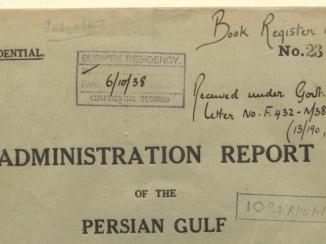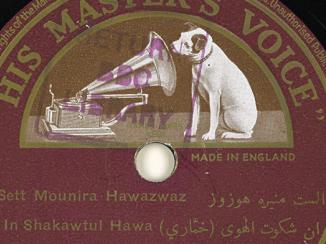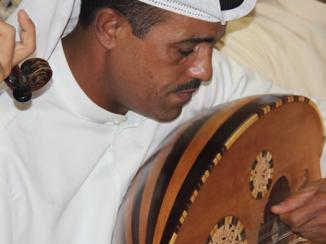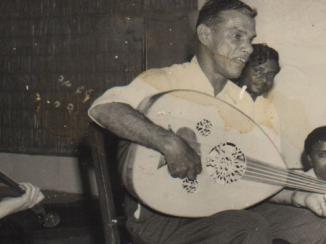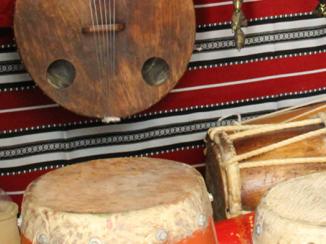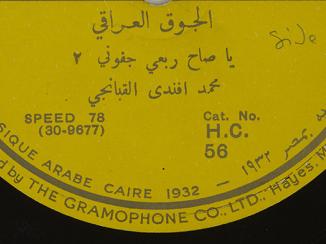Overview
From 28 November to 19 December 2013, I conducted research on traditional music in Qatar. There I had the opportunity to record traditional music and dance at private and public musical events and specially arranged recordings.
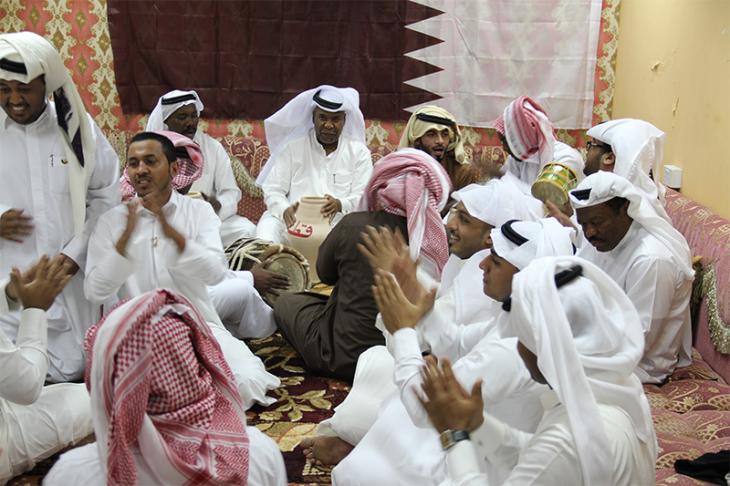
The main aim of my research and fieldwork was to complement the historical, commercial recordings (mainly shellac discs) and older fieldwork recordings from the Persian Gulf The historical term used to describe the body of water between the Arabian Peninsula and Iran. in the British Library’s collections.
I wanted to discover the traditional music culture of Qatar for myself and to find musicians who still perform. For me this was important in order to make links between the current musical cultures in Qatar and older commercial and field recordings in the Library’s collection.
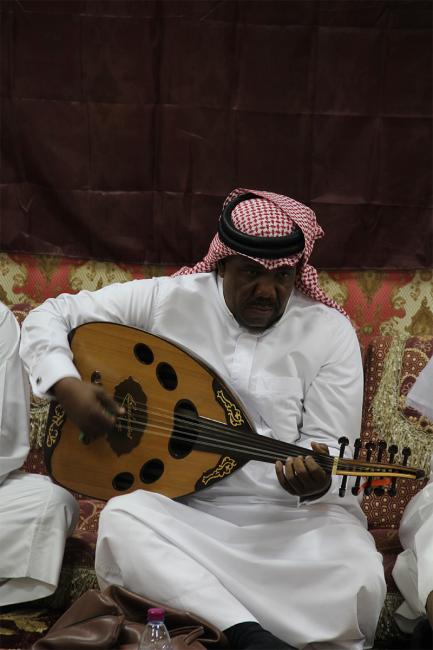
The highlight was a lengthy recording session of sea music and ṣawt in the majlis (a formal reception room, in this case used for musical performances) of the Qatari bandleader and musician Khalid Johar. It was an incredible evening with around twenty-five musicians, singers, clappers and dancers. Before the musicians filed in and sat down in a semi-circle, huge plates of roasted lamb heaped on spiced biryani rice were served to the musicians and guests.
At this concert Ibrahim Ali, the most senior ṣawt singer in Qatar, told me that he once performed with Rashid Ali Suri during Suri’s visit to Qatar in the 1970s. After the performance, extremely strong white coffee in small porcelain cups was served and a seldom-performed horse dance – al-Fareesa – concluded the evening.
Traditional Music of Qatar
Walking along the Corniche, the waterfront in Qatar’s capital, Doha, I had the impression that the rapidly modernising country has left much of its Bedouin and seafaring culture behind. The Corniche has more than its fair share of skyscrapers and the promenade walkways, which are still under construction, run alongside a motorway. The wooden boats moored there are tour boats for tourists and affluent Qataris, rather than for traditional industries such as pearling or fishing.
Photographs from the 1950s show the sea-front’s still pristine water, with fishing and pearl-diving boats. But today, away from the sea-front, the low-rise buildings that once stood there have been replaced with skyscrapers.
During my fieldwork it proved difficult to get in contact with traditional musicians and arrange recording sessions. In part this appears to be because traditional music has been widely displaced by modern Arabic or Western pop music. Additionally, because of the common origins of music in the region, today many musical performances in Qatar are conducted by musicians from neighbouring countries. On occasions such as weddings and tribal gatherings, artists from Bahrain, Kuwait and Saudi Arabia are as likely to perform as Qatari-born musicians. In this way, Qatar has become a hub for many a variety of musical cultures originating in the Gulf and further afield.
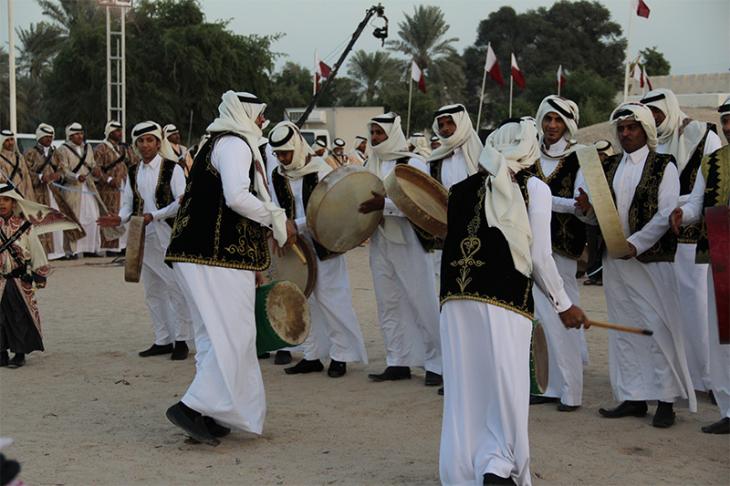
While researching traditional Gulf music held at the British Library I discovered that commercial recordings were issued in Qatar until the 1980s, but seem to have stopped almost entirely after this date. There seems to be two reasons for this: rapid modernisation that has perhaps led to changes in musical preferences of the Qatari population; and the fact that many musicians were recruited for the newly established political and cultural institutions throughout the 1980s and beyond.
As a foreigner, spending a limited amount of time in Qatar, it can be difficult to get to the heart of the community of musicians still practising traditional music. However, once given access to family, tribal or informal gatherings, I could see that traditional musical culture is still alive and well. I was very fortunate to be able to record musical traditions, such as ṣawt, sea-music, and al-ardha dance, at the heart of Gulf musical culture. We also had the unique opportunity to record musical genres of the Malayalee community such as arabana muttu.
Qatari Society
Many young people today are interested in contemporary Gulf, Egyptian, Bollywood or western pop music, while musical education in Qatar seems to favour western classical or Arabic classical music. This may reflect the global, cosmopolitan lifestyle of the Qatari elite, who are often western-educated.
However, the diverse nature of Qatari society also has a direct influence on musical culture. Asians - especially Indian, Pakistani, Nepali and Filipino - European and American as well as other Arab communities live alongside one another in parallel. Although most cultural events are celebrated separately, Qatar National Day unites many of the resident communities.
In Qatar, just as in many parts of the Gulf, traditional music is played at weddings and funerals, reflecting cultural continuity and changes, history, ethnicity and cultural heritage. But it is also part of a greater nation-building project for this relatively young, rapidly-changing country.
Watch More Traditional Music and Dance from Qatar
- Sea music from Qatar 1
- Sowt ‘alla al-youm
- Ṣawt ‘yā jazīl al 'atā
- Ṣawt ela muḥayyāk
- Mirwās wizards from Qatar
- Sea music from Qatar 2


